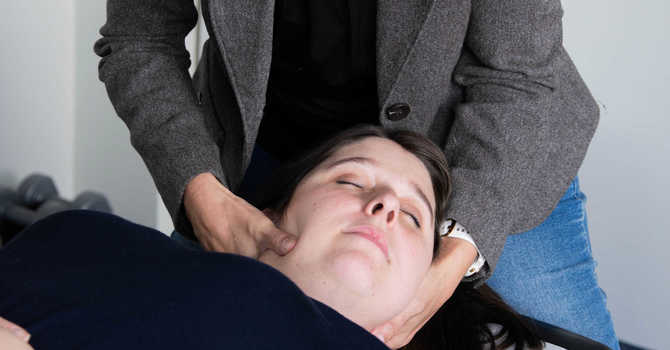
Whether you're a seasoned athlete or just starting on your fitness journey, injuries and discomfort can happen to anyone. When they do, it's essential to have the right support and guidance to help you recover and get back in the game. Athletic therapy is a specialized field that focuses on preventing, managing, and rehabilitating sports-related injuries. If you're considering your first visit to an athletic therapist, here's what you can expect:
1. Initial Assessment: Your first appointment with an athletic therapist is all about understanding your unique situation. You'll discuss your medical history, the nature of your injury, and your fitness goals. Expect questions about when the injury occurred, how it happened, and what symptoms you're experiencing.
2. Physical Examination: To get a comprehensive view of your condition, the therapist will conduct a physical examination. This may involve testing your range of motion, strength, flexibility, and assessing any areas of pain or discomfort. The therapist will use their expertise to pinpoint the root causes of your issues.
3. Treatment Plan: After the assessment, your athletic therapist will discuss their findings with you. They will outline a personalized treatment plan that may include various techniques like manual therapy, exercise prescription, modalities (e.g., heat or cold therapy), and more. The plan will be tailored to your specific needs and goals.
4. Education: One of the key roles of an athletic therapist is to educate you about your injury and the healing process. You'll learn how to manage your condition, prevent future injuries, and optimize your performance. This knowledge empowers you to take an active role in your recovery.
5. Hands-On Treatment: Depending on your condition, your therapist may perform hands-on treatments during your first visit. This could include techniques like joint mobilization, soft tissue manipulation, or taping to support injured areas.
6. Home Exercises: To facilitate your recovery, your athletic therapist will likely prescribe exercises for you to do at home. These exercises are designed to improve strength, flexibility, and overall function. Compliance with your home exercise program is essential for successful rehabilitation.
7. Follow-Up Plan: Before you leave, you'll schedule your next appointment or discuss the frequency of follow-up visits. The therapist will monitor your progress and make necessary adjustments to your treatment plan along the way.
8. Expectations: Remember that healing takes time, and progress may vary depending on the severity of your injury. Be patient and committed to your treatment plan to achieve the best results.
In conclusion, your first visit to an athletic therapist is a proactive step toward recovery and enhanced performance. With their expertise and guidance, you'll not only overcome your current injury but also gain valuable knowledge to prevent future issues. So, if you're dealing with a sports-related injury or simply aiming to optimize your athletic performance, consider scheduling your first visit with our Athletic Therapist Claire O'Shea today!
Your journey to better health and fitness starts here.

Admin
Contact Me



